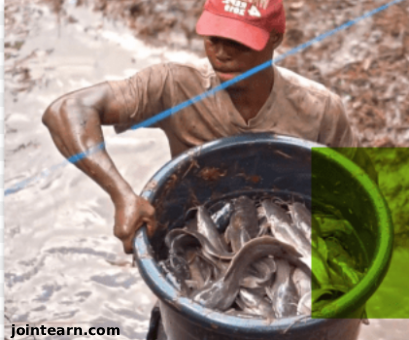
The Lagos State Government is updating its fisheries and aquaculture database to align with international standards set by the Food and Agriculture Organization (FAO) and the European Union (EU). This initiative aims to improve data quality, accuracy, and transparency in the management of Lagos’s vibrant fisheries sector.
Both the FAO and the EU emphasize the importance of standardized and interoperable fisheries data systems to support sustainable resource management and evidence-based policy decisions.
Strengthening Fisheries Data for Global Competitiveness
Commissioner for Agriculture and Food Systems, Ms. Abisola Olusanya, explained that the state is working toward creating a comprehensive national fisheries management database.
According to her, the effort will improve data accuracy, enhance sector planning, and boost Lagos’s competitiveness in international fish trade.
“Maintaining a unified and transparent fisheries database is a top priority for us. It’s essential to meet global recommendations and to ensure that our data reflects the realities of our fishing communities,” she said.
Collaboration with Fishing Associations
Olusanya noted that the ministry is collaborating closely with industry associations and traditional fishing communities to gather consistent and reliable data.
“We work with groups such as the Lagos State Catfish Allied Farmers Association (LASCAFAN) because they update their databases regularly. This partnership ensures that our records remain accurate and aligned with real-time activities,” she added.
The state’s fisheries monitoring team conducts regular field visits to verify information, inspect fish farms, and assess production capacities.
Scientific Data for Sustainability
The commissioner highlighted that Lagos conducts periodic aquatic resource surveys to provide scientific data that underpin sustainable fisheries management.
“These surveys help establish the scientific basis for resource planning and demonstrate the legality and sustainability of fishing activities,” Olusanya explained.
All data collected are integrated into a central database, ensuring consistency in methodology, standards, and management tools. This framework will strengthen traceability, resource management, and compliance with export requirements, solidifying Lagos’s role as a major player in Nigeria’s aquaculture industry.
Cultural and Economic Significance of Fisheries
Olusanya emphasized that fisheries remain deeply rooted in Lagos’s culture and economy.
“Fisheries and aquaculture are among the oldest and most important occupations in Lagos. Many of our traditional rulers oversee fishing communities,” she noted.
She highlighted the link between traditional leadership and fishing, citing communities under the Oniru, Elegushi, and Oba of Lagos as examples.
“Every area in Lagos is connected to water, and that connection shapes our cultural and economic identity,” she added.
Commitment to Continuous Data Improvement
While acknowledging that no dataset is perfect, the commissioner assured that Lagos’s fisheries data now achieve about 80 percent accuracy.
“It may not be 100 percent accurate, but our goal is continuous improvement. We are committed to maintaining a living, regularly updated record that keeps our fisheries data current,” she stated.


Leave a Reply